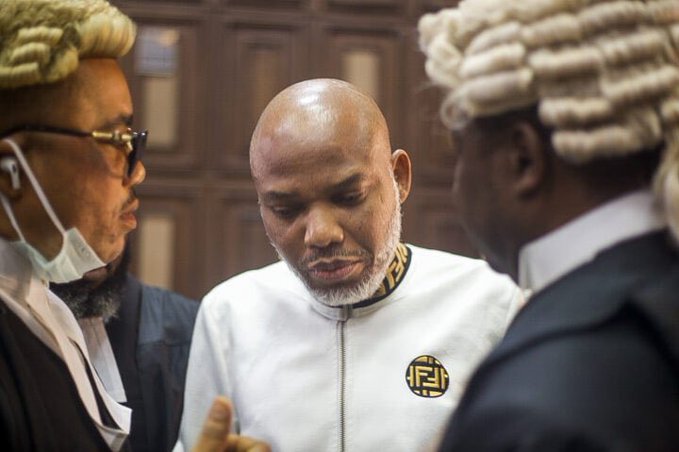Nnamdi Kanu, leader of the Indigenous People of Biafra (IPOB), has formally abandoned his plan to call witnesses in his ongoing trial for alleged terrorism-related charges, asserting that no legitimate case exists against him.
Kanu had initially informed the court of his intention to summon witnesses in his defence by submitting a formal written request for witness summons. However, during proceedings on Monday, he stated that after reviewing the case file, he found no substantive charges and concluded that he had been subjected to an unfair trial.
“I see no reason to present a defence as no valid charges have been brought against me,” Kanu told the court.
Justice James Omotosho, presiding over the case, instructed Kanu to submit a written statement detailing his decision and to ensure it is formally delivered to the prosecution. The judge also recommended that Kanu seek advice from criminal law experts on the legal implications of foregoing a defence, stressing that such a decision could carry significant consequences.
READ ALSO: Nnamdi Kanu holds private legal consultation ahead of defence opening in terrorism trial
The court subsequently adjourned the proceedings to 4th, 5th, and 6th November to allow both the prosecution and defence to present their final written arguments. This schedule follows Kanu’s assertion that neither the evidence nor the charges presented thus far substantiate a legitimate case against him.
Legal analysts say Kanu’s decision is unusual in terrorism-related cases, where defendants often present extensive witness testimony. By choosing not to call witnesses, Kanu appears to be challenging the very validity of the charges, signalling a strategic shift in his legal approach.
Supporters of the IPOB leader have welcomed his stance, describing it as a bold assertion of his rights, while critics caution that refusing to present a defence could be risky and leave Kanu vulnerable to a default judgement.
Kanu’s trial, which has drawn national and international attention, remains a flashpoint in Nigeria’s political and security discourse, highlighting ongoing tensions in the country’s south-eastern region.



